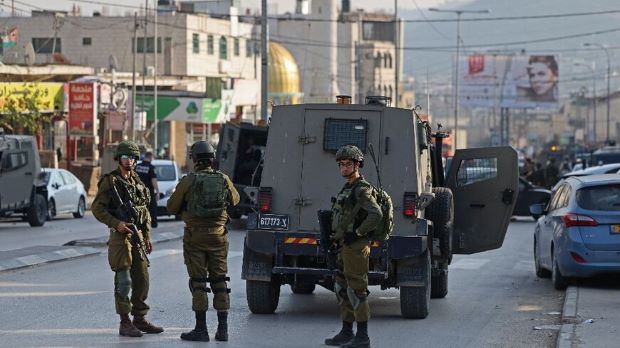At Jordan talks, Israel, Palestinians pledge to prevent new unrest
By Kamal Taha
AMMAN -Israeli and Palestinian officials pledged after rare talks in Jordan on Sunday (26) to prevent more violence, which has surged this year and saw two Israelis killed in the West Bank as the meeting took place.
After “thorough and frank discussions” that included officials from Egypt as well as the United States, the Palestinian and Israeli sides “reaffirmed the need to commit to de-escalation on the ground and to prevent further violence”, a joint statement after the meeting in the Red Sea resort of Aqaba said.
In Jordan, state broadcaster Al-Mamlaka said the meeting was “the first of its kind in years between Palestinians and Israelis with regional and international participation”, and would address “the situation in the Palestinian territories”.
As the talks were underway, Israeli Prime Minister Benjamin Netanyahu and his national security minister, Itamar Ben-Gvir, said in a statement that “two Israeli civilians were killed in a Palestinian terror attack” after a shooting in Huwara in the northern West Bank, which Israeli has occupied since the 1967 Six-Day War.
An Israeli government official, requesting anonymity because they were not authorized to speak publicly about the talks, said their delegation to Jordan included national security adviser Tzachi Hanegbi and Ronen Bar, head of the Shin Bet domestic security agency.
The delegates would “discuss ways to calm security tensions in the region ahead of the month of Ramadan”, which begins in less than a month, the Israeli official added.
Sources with knowledge of the meeting said Palestinian intelligence chief Majed Faraj was also set to attend.
US National Security Council coordinator for the Middle East and North Africa Brett McGurk, as well as Jordanian and Egyptian security officials, were also there.
The Israeli government and the Palestinian Authority “confirmed their joint readiness and commitment to act immediately to stop unilateral measures for a period of three to six months”, the joint statement after the talks said.
This includes an Israeli commitment “to stop discussing the establishment of any new settlement units for a period of four months” and to not legalize any unofficial wildcat outposts for six months, it said.
King Abdullah II met McGurk and stressed “the importance of intensifying efforts to push for calm, de-escalation in the Palestinian territories, and stopping any unilateral measures that would destabilize stability and undermine the chances of achieving peace,” a royal court statement said.
Sunday’s meeting came amid international concerns over intensifying unrest between Israel and the Palestinians.
Netanyahu returned to power in late December at the head of a coalition government regarded as one of the most right-wing in Israel’s history.
The veteran hawk has handed key West Bank powers to far-right ministers.
News of the Palestinian leadership’s decision to attend the Jordan talks drew criticism from other factions after 11 Palestinians were killed Wednesday (22) in a gun battle when Israeli troops raided the West Bank city of Nablus.
The death toll was the highest since the second Palestinian intifada, or uprising, ended in 2005, the year the United Nations started tracking casualties.
“The decision to take part in the Aqaba meeting despite the pain and massacres being endured by the Palestinian people comes from a desire to bring an end to the bloodshed,” the ruling Fatah movement of president Mahmud Abbas had said on Twitter.
Khaled al-Batsh, a leader of the Islamic Jihad militant group in Gaza, told reporters the Palestinian Authority’s talking part was “a dangerous national transgression of all national norms in light of the ongoing occupation crimes in the West Bank, Gaza and Jerusalem”.
He warned the PA of “consequences”.
Islamist group Hamas, which controls the Gaza Strip, in a statement also rejected the PA’s participation, calling the talks “a blatant attempt to cover up ongoing occupation crimes”.
– Agence France-Presse



Comments are closed, but trackbacks and pingbacks are open.